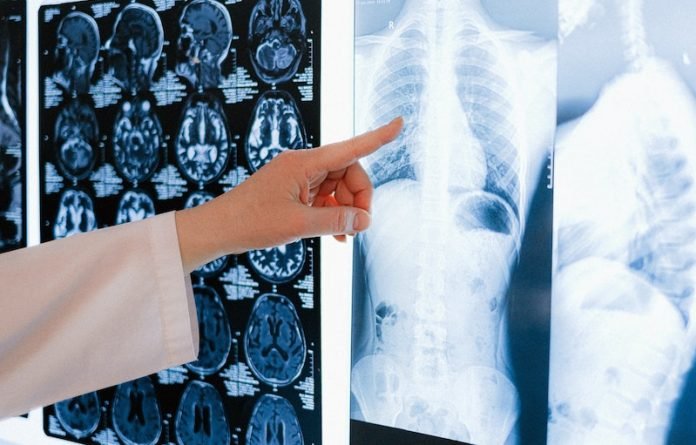
In a study from the Francis Crick Institute and elsewhere, scientists found how very small pollutant particles in the air may trigger lung cancer in people who have never smoked, paving the way to new prevention approaches and the development of therapies.
The particles, which are typically found in vehicle exhaust and smoke from fossil fuels, are associated with non-small cell lung cancer (NSCLC) risk, accounting for over 250,000 lung cancer deaths globally per year.
The new findings are based on human and laboratory research on mutations in a gene called EGFR which are seen in about half of people with lung cancer who have never smoked.
In a study of nearly half a million people living in England, South Korea and Taiwan, the team found exposure to increasing concentrations of airborne particulate matter (PM) 2.5 micrometres (μm) in diameter was linked to an increased risk of NSCLC with EGFR mutations.
The scientists showed that the same pollutant particles (PM2.5) promoted rapid changes in airway cells which had mutations in EGFR and in another gene linked to lung cancer called KRAS, driving them towards a cancer stem cell-like state.
They also found that air pollution drives the influx of macrophages which release the inflammatory mediator, interleukin-1β, driving the expansion of cells with the EGFR mutations in response to exposure to PM2.5, and that blockade of interleukin-1β inhibited lung cancer initiation.
These findings were consistent with data from a previous large clinical trial showing a dose-dependent reduction in lung cancer incidence when people were treated with the anti-IL1β antibody, canakinumab.
The team also found EGFR and KRAS driver mutations in 18% and 33% of normal lung samples, respectively.
When lung cells with these mutations were exposed to air pollutants, there are more cancers and these occurred more quickly than when lung cells with these mutations were not exposed to pollutants.
This suggests that air pollution promotes the initiation of lung cancer in cells harboring driver gene mutations.
The next step is to discover why some lung cells with mutations become cancerous when exposed to pollutants while others don’t.
If you care about cancer, please read studies about common drugs for inflammation, diabetes, alcoholism may help kill cancer and statin drugs can starve cancer cells to death.
For more information about cancer treatment and prevention, please see recent studies about findings that are key to surviving cancer and results showing common Indian fruit may slow down cancer growth.
The study was conducted by Charles Swanton et al and reported at the ESMO Congress 2022.
Copyright © 2022 Knowridge Science Report. All rights reserved.



